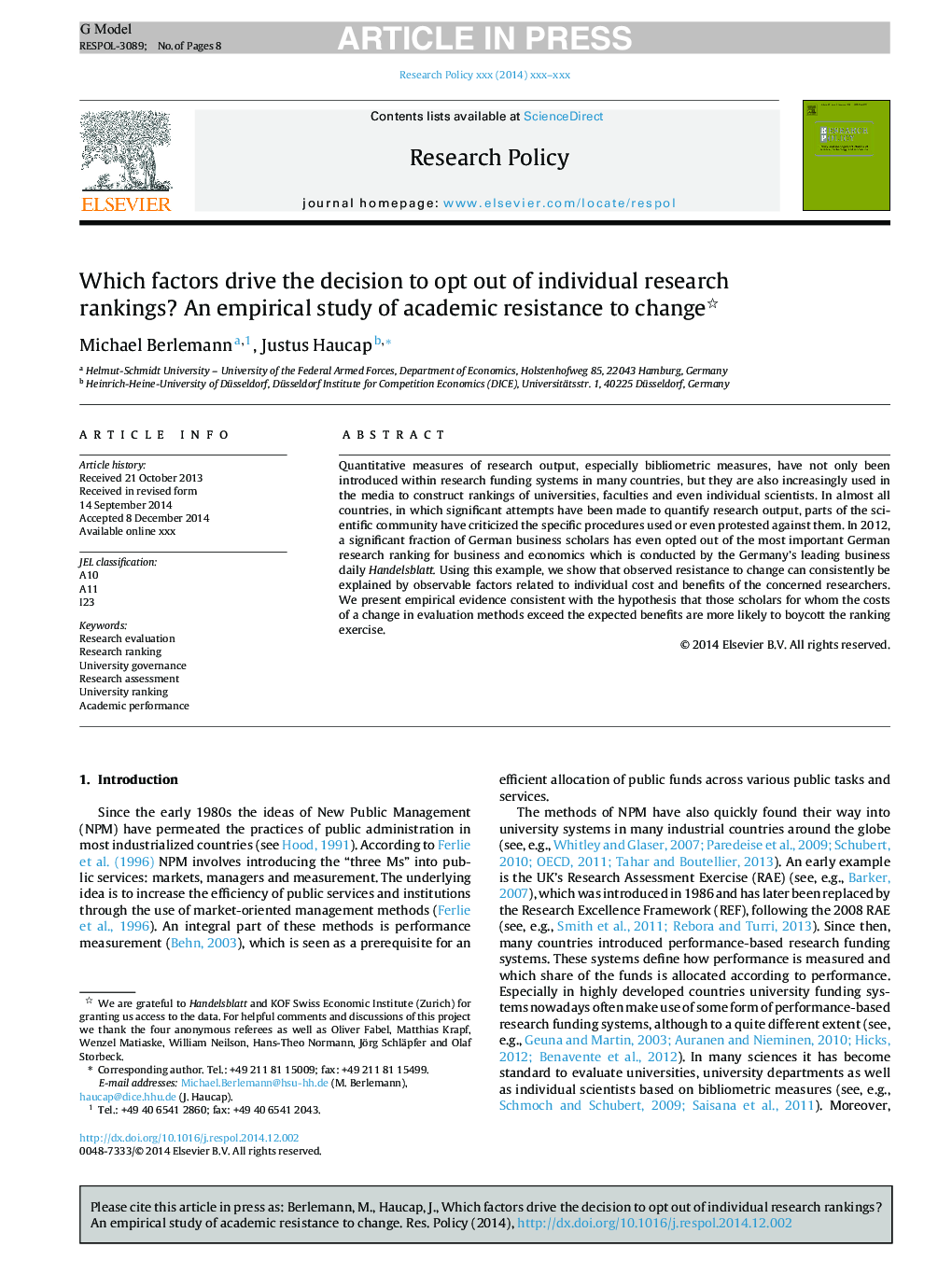| Article ID | Journal | Published Year | Pages | File Type |
|---|---|---|---|---|
| 10482932 | Research Policy | 2015 | 8 Pages |
Abstract
Quantitative measures of research output, especially bibliometric measures, have not only been introduced within research funding systems in many countries, but they are also increasingly used in the media to construct rankings of universities, faculties and even individual scientists. In almost all countries, in which significant attempts have been made to quantify research output, parts of the scientific community have criticized the specific procedures used or even protested against them. In 2012, a significant fraction of German business scholars has even opted out of the most important German research ranking for business and economics which is conducted by the Germany's leading business daily Handelsblatt. Using this example, we show that observed resistance to change can consistently be explained by observable factors related to individual cost and benefits of the concerned researchers. We present empirical evidence consistent with the hypothesis that those scholars for whom the costs of a change in evaluation methods exceed the expected benefits are more likely to boycott the ranking exercise.
Keywords
Related Topics
Social Sciences and Humanities
Business, Management and Accounting
Business and International Management
Authors
Michael Berlemann, Justus Haucap,
